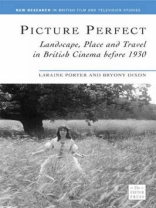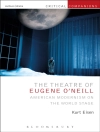The British cinema has drawn extensively on our national landscapes. Filmmakers have explored the entrenched myth of an idyllic rural tradition, intimately bound up with a popular definition of national heritage. Conversely, within a documentary-realist framework, they have looked at the contemporary urban aesthetic, derived partly from a Victorian tradition of social investigation.
The fifth in a series of volumes from the annual British Silent Cinema Festival held in Nottingham (and the first to be published by Exeter), this collective study offers an original treatment of the relationship between pre-1930 cinema and landscape. The Nottingham festival from which this collection derives brought together a group of leading specialists – practitioners, academics and individual researchers – who between them provide a detailed investigation into the national cinema before the sound era.
Spis treści
Contents: Notes on Contributors; Introduction; Alan Burton and Laraine Porter; Location, Location, Location: Landscape, Place and Travel in British Cinema Before 1930; Bryony Dixon (Curator of Silent Film at the BFI’s National Film and Television Archive); On Location in Edwardian Britain: Urban and Rural Violence; Tony Fletcher (founder member of The Cinema Museum in London); The Marketing of Landscapes in Silent British Cinema; Paul Moody (lecturer in Media Studies at Uxbridge College); Narrative and Pictorialism in Post-Pioneer Hepworth Films; Simon Brown (senior lecturer in Film Studies at Kingston University); Pastoral Transformations in 1920s British Cinema; Christine Gledhill (Professor of Cinema Studies at the University of Sunderland); 'The Plucky Girl’ and the 'Pigeon to Pluck’: Characters, Locations and Entertainment Forms in Rogues of London; Judith Cowan (archive researcher at the ITN archive working on the Reuters Collection); Trainers and Temptresses: The British Racing Drama; Judith Mc Laren (teacher of English at St Paul’s School in London); The First Cameraman in Iceland: Travel Film and Travel Literature; Ivo Blom (lecturer in Film Studies at the Department of Comparative Arts Studies of the Vrije Universiteit, Amsterdam); The Anglo-Boer War in North London: A Micro-Study; Ian Christie (Professor of Film and Media History, Birkbeck College London); Everyone’s Doing the Riviera Because It’s So Much Nicer in Nice; Amy Sargeant (Senior Research Fellow at the Paul Mellon Centre for the Study of British Art and Architecture); The City of the Future; Patrick Keiller (films include London (1994) and Robinson in Space (1997); research fellow at the Royal College of Art in London); Co-operation and the Contestation of Public Space; Alan Burton (teacher at the University of Klagenfurt in Austria); Billy Merson’s Monologue: Blighted My Life; Mick Eaton (recent TV work includes 'Shipman’, a factual drama about Britain’s most prolific serial murderer); Index.
O autorze
Simon Brown is Associate Professor in Film and Television at Kingston University. His main areas of research are early cinema, British cinema, colour cinematography and contemporary American television. He joined Kingston University in 2004 after spending a decade at the BFI National Film and Television Archive, sourcing and restoring old films.In 2004, in addition to teaching at Kingston, he was Senior Research Fellow for The London Project, a year-long AHRB funded project researching the history of the British Film Industry in London from its inception to 1914.He has written about and taught a range of Film, TV and Media related subjects such as Film History and Technology, National Cinemas including Britain, China and Hong Kong, Cult Film and Television, Horror, Censorship, Documentary and the History of Non-Fiction Film, Archiving and the Media Industry as well as Contemporary American Film and Television.












